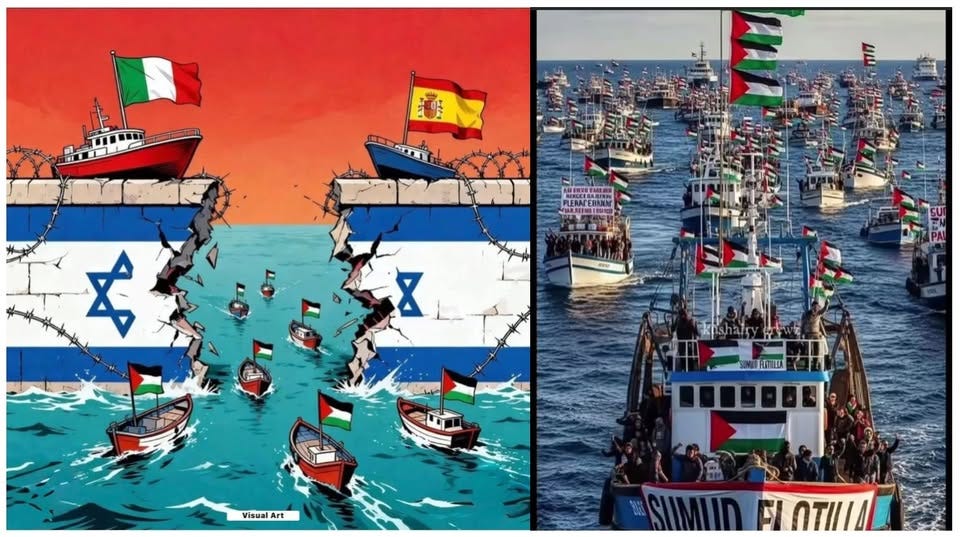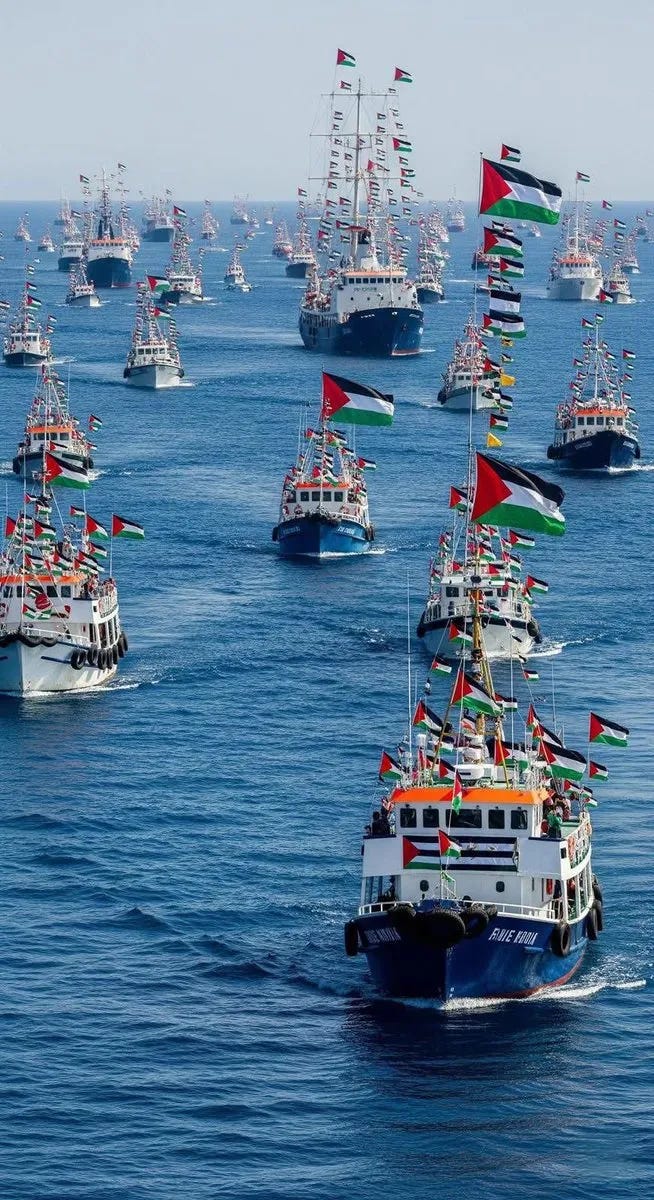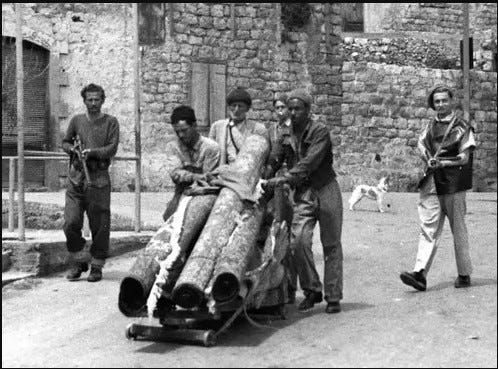The Global Sumud Flotilla is more than a convoy of boats. It is a human alarm bell, a collective cry that says enough. Gaza will not be erased from the world’s conscience.
The flotilla sails with volunteers, medics, journalists, and ordinary citizens. They carry aid, they bear witness, and they force the world to confront what a blockade does to a civilian population. When governments falter, civil society must step forward to name what is happening and demand change.
Danger, Memory, and Moral Witness
From the start, the mission has been dangerous. Activists have reported drone incursions, loud explosions near vessels, and damage to boats. In one case, organisers said a Gaza-bound ship was struck while in a Tunisian port. Tunisian authorities disputed the claim, saying a fire began on board. These contradictions matter, but they do not erase the fact that unarmed civilians at sea have been put at risk. That must be unacceptable to any country that claims to stand for human rights.
We must also remember history. The memory of the Mavi Marmara in 2010 must be kept alive. Israeli forces boarded a flotilla in international waters, and nine activists were killed. That event shocked the world. It showed how civilian attempts to deliver aid and protest a blockade can meet deadly force. It taught that witness at sea carries both moral power and real danger.
We owe those who sail now the full weight of that memory. And we owe Gazans the same insistence that their lives matter.
Europe Watches, But More is Needed
European states have responded with naval vessels. Italy dispatched a frigate, and Spain sent ships to monitor the situation. Governments say they will not escort the flotilla into the blockade, but they do show concern for safety and rescue. That presence is a thin shield. It is not enough.
International actors must do more than watch. They must pressure for safe, neutral, and monitored routes for humanitarian relief to Gaza.
Three Urgent Demands for Justice
This is a strongly pro-Palestinian moment. Not because ships make borders vanish, but because people refuse to accept the slow violence of siege and deprivation. Gaza is running out of food, medicine, fuel, and clean water. Children are starving. Hospitals are collapsing. These are not political abstractions. They are human lives.
We must demand three clear things now:
First, every reported attack on civilian vessels must be independently investigated. If drones or explosives targeted peaceful boats in international waters, those acts are a violation of law and of common decency. Governments must not allow anonymous violence at sea to become routine. They must hold those responsible to account.
Second, open and protected maritime humanitarian corridors must be created. The United Nations and neutral agencies must be given the authority to organise regular sea and land aid routes under independent supervision. This would save lives far more reliably than one-off symbolic deliveries. It would also remove the pretext that security concerns justify a blockade that punishes civilians.
Third, pressure must be applied to end the blockade and restore basic rights. Collective punishment is never lawful. International law exists to protect civilians in war. States and institutions that believe in human rights must move beyond statements. They must use diplomacy, sanctions, and legal measures to force an end to policies that create famine and mass suffering.
Reports and past inquiries have shown inadequate responses to previous flotilla violence. We must not repeat that failure. Independent, transparent mechanisms must be strengthened.
Choosing Humanity Over Indifference
To those who sail, and to those who support them: your mission matters because it makes the invisible visible. Your witness breaks the cycle of indifference. It forces leaders to answer for their choices. That pressure can change policy. It can open doors that diplomacy has left closed.
To critics who call the flotilla reckless, the answer is clear: reckless is watching an entire population suffer and treating it as normal. Reckless is making geopolitics more sacred than human life. If there is risk involved, let it be the risk of choosing humanity over indifference.
A Moral Demand for Our Time
This is not only about boats. It is about the kind of world we want to live in. Do we accept that whole populations can be denied food and medicine and call it policy? Or do we insist that human life and dignity come first?
The Sumud Flotilla is a moral demand. It says we will not be bystanders. It calls on everyone with a conscience to act, to write, to protest, to pressure their leaders, and to support practical humanitarian routes so Gaza can breathe again.
All articles on Diaspora Dialogue are free to read for one year from publication. If you’ve enjoyed this piece and would like to support my work, you can do so by subscribing, or by buying me a coffee. Thank you for reading and being part of the dialogue!






The Devil IsRael states of america. The Antichrist.